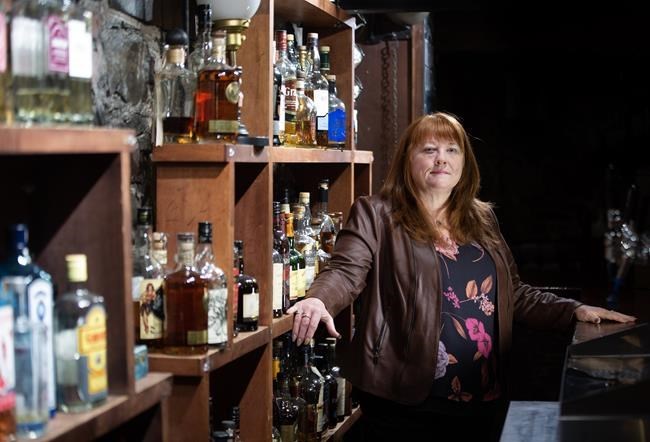Canada's restaurant industry is bracing for the biggest jump in the country's alcohol excise duty in more than 40 years, spurring warnings the tax hike could force some bars and restaurants out of business.
"Any increase at this very vulnerable time for our industry is just another blow while we're down," said Brenda O’Reilly, the owner of multiple restaurants and a brewery in St. John's, N.L.
"It's like death by a thousand cuts."
Bar and eatery operators across Canada have endured lockdowns, labour shortages, supply chain mayhem and soaring costs for everything from payroll to cooking oil. Rising inflation has also softened demand as some consumers stay home to save money.
"Many of us haven't recovered from the pandemic and now they want to raise this tax," she said. "It's hard to get blood out of a turnip. We'll see more restaurant closures if this goes ahead."
The federal beverage alcohol duty is set to increase 6.3 per cent on April 1.
Alcohol excise duties are imposed at the manufacturing level and adjusted annually based on inflation.
While the duty is separate from provincial liquor board fees and sales taxes, it ultimately filters down to higher prices for consumers, said CJ Hélie, the president of Beer Canada.
"It's imposed at the point of production and paid by the manufacturer, which means it's built into the price of the product and magnified as it goes through the supply chain from the distributor to the retailer," he said.
The automatic annual tax increase is a long-standing irritant for the beverage industry, but was "digestible" when inflation was around two per cent, Hélie said.
But this year's adjustment is more than triple the usual increase and should be reconsidered given the state of the industry, he said.
"When inflation is through the roof, we need to rethink this automatic formula," Hélie said. "The industry is already in dire straits. Using a rigid formula in a time like this is unacceptable."
Some brewers may try to absorb the higher cost by delaying investment plans like new hiring but he said there's only so much they can do before passing the tax hike along.
"They'll try to recoup what they can through the wholesale price but it could impact demand and end up costing them in lower sales volumes anyway," Hélie said.
Alcohol excise duty rates are adjusted by law on an annual basis to account for inflation, Adrienne Vaupshas, press secretary of Finance Minister Chrystia Freeland, said in an email.
The increase next month works out to less than a penny on a can of beer, she added.
On a litre of wine, the excise duty rate is increasing to $0.731 from $0.688, or a little over four cents, according to figures provided by the Canada Revenue Agency. For a 750 ml bottle of wine, the increase would be closer to three cents.
But industry group Restaurants Canada said it will cost Canada's food-service industry about $750 million a year, with the average casual dining restaurant expected to pay an extra $30,000 towards alcohol.
At the retail level, the impact may be more subtle. Though added on top of other price increases, consumers may notice higher prices.
The Liquor Control Board of Ontario said customers may experience a price increase on select products by the end of April if manufacturers pass along the federal excise tax increase.
For example, a 750ml bottle of wine or an imported six-pack of beer may increase by five to 10 cents, while a 750ml spirit of 40 per cent alcohol may increase by 70 cents, the LCBO said in an email.
A spokeswoman for the Nova Scotia Liquor Corp. said beverage alcohol prices are increasing by just over three per cent overall next month.
But these increases are due to a number of factors, including higher excise taxes and the rising cost of raw goods such as bottles, cans, barley, and labels, NSLC spokeswoman Allison Himmelman said in an email.
In British Columbia, a spokesperson for the BC Liquor Distribution Branch said it’s not possible to confirm what level of price increase consumers may or may not see.
"Each liquor supplier will decide whether or not to increase its wholesale price to account for the increase it must pay in excise duty," Robin Fraser said in an email.
"Then retailers will make the decision on whether to adjust the prices for consumers for those products," Fraser said. "It is up to each retailer to determine if, and by how much, to raise its prices."
Alcohol beverage prices rose 5.7 per cent in February compared with a year before, according to Statistics Canada.
While that's only slightly higher than the overall inflation rate of 5.2 per cent last month, the tax hike in April along with other increases could see the alcohol inflation rate rise faster than general inflation later this spring.
"Our industry is struggling and we can't absorb more increases," said Olivier Bourbeau, vice-president of federal affairs with Restaurants Canada. "Restaurant margins are always thin but right now they're around two to three per cent."
A recent Restaurants Canada survey found about half of Canadian licensed restaurants are operating just at or below profitability levels.
This is in part because restaurants are absorbing some of the higher costs due to inflation, Bourbeau said.
Indeed, while grocery prices recorded a 10.6 per cent year-over-year increase in February, restaurant food prices only rose 7.7 per cent, Statistics Canada figures show.
Also, alcohol beverages purchased from stores rose 6.0 per cent in February, while alcoholic beverages served in licensed establishments increased only 4.3 per cent, the agency said.
"Restaurants can't absorb any more price increases," Bourbeau said. "But if they pass those costs to customers it could hurt their business."
"At the end of the day, consumers will only pay so much before they start to cut back."
This report by The Canadian Press was first published March 24, 2023.
Brett Bundale, The Canadian Press

.jpg;w=120;h=80;mode=crop)

